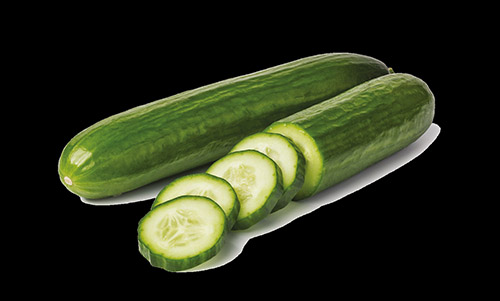
Most kosher food vendors in the tri-state offer some form of cucumber, whether in cucumber or Israeli salad, as a pickle or otherwise, When and why did cucumbers become a staple of the kosher culinary experience? What is the Jewish connection to cucumbers? When did our cucumber cravings begin?
Believe it or not, cucumbers are mentioned at least once in the Torah. Finding the citation can be a rather (cu)cumbersome task but if you search Bamidbar (the book, not the desert) you will find a reference to cucumbers among a list of edible items from Egypt about which Bnei Yisroel reminisced: “We remember the fish which we were wont to eat in Egypt for nought; the cucumbers, and the melons, and the leeks, and the onions, and the garlic” (Bamidbar 11:5). Strangely, in modern times, Egypt is not known for its cucumbers. In fact, today the world’s leading cucumber exporters are Spain, Mexico and The Netherlands. It also is strange that cucumbers, like kugels, come in many varieties including the Lemon Cucumber (which looks like but does not taste like a lemon) and the Salt and Pepper Cucumber (which looks like but does not taste like salt and pepper).
Cucumbers also are mentioned in Nevi’im: “And the daughter of Zion is left as a cottage in a vineyard, as a lodge in a garden of cucumbers, as a besieged city.” (Isaiah 1:8). Many scholars interpret a “lodge in a garden of cucumbers” as a lonely place where a gardener would stay up all night to protect the cucumbers from those lurkin’ for a gherkin. In a kosher deli, it would be very difficult to guard a barrel of pickles; at best, you would lose a half-sour every half-hour.
Cucumbers are mentioned again in Nevi’im, albeit in a different context: “They are like a pillar in a garden of cucumbers, and speak not… Be not afraid of them, for they cannot do evil, Neither is it in them to do good. (Jeremiah 10:5). Most scholars interpret this phrase as pertaining to idolatry, but the cucumbers do not appear to be the focus of this sentiment, which makes sense because the number of people who pray to a cucumber is similar to the number of people who worship a zucchini.
Cucumbers also are mentioned in the Talmud. For example, “Rabbi Akiva says in Rabbi Joshua’s name: ‘If two are gathering cucumbers [by magic] one may be punished and the other exempt: he who really gathers them is punished: while he who produces an illusion is exempt.’” (Mishnah Sanhedrin 7:11). This rule pertains to the general prohibition against sorcery but it creates an exception for mere illusions. In other words, it is permissible to make a cucumber disappear, pull a cucumber out of a hat or saw a cucumber in half, as long as the trick is nothing more than smoke and mirrors.
The Talmud also notes: “A laborer may eat cucumbers even to a denar’s worth… [but] Rabbi Elazar ben Hisma says: ‘A laborer may not eat more than the value of his wages.’”(Mishnah Bava Metzia 7:5) In other words, if you’re making Waldorf slaw, do not eat more celery than your salary.
In the context of kashrut and not eating meat with dairy, the Talmud mentions that under certain circumstances, if a person uses a knife to cut meat and then cuts “a cucumber with the same knife, [the cucumber] does not absorb the fat to [a large] extent [so] [o]ne may therefore simply scrape the place of the cut to remove any fat residue, and then one may eat the cucumber with kutaḥ [a preserve or relish of bread crusts and sour milk].” (Chullin 12a). Of course, there are limits to this notion. For example, one should not cook a cucumber in cholent and then use it as a topping for a pizza. In fact, regardless of the circumstances, a cucumber-topped pizza is a bad idea, even as a snack while traveling through the (cu)Cumberland Gap.
The Talmud also notes that “when Rav Dimi came from Eretz Yisrael to Babylonia, he said: With regard to two eggs, two nuts, two cucumbers, and another matter, there is a halacha transmitted to Moses from Sinai that they are dangerous in pairs.” (Pesachim 110b) That said, there are many other things that are potentially more dangerous in pairs than cucumbers including, for example, a pair of eaves-dropping yentas, ravenous schnorrers and meddlesome in-laws.
Final thought: Most cucumbers aspire to be pickles just like most tomatoes desire to be marinara, most beets long to be borscht and most eggplant yearn to be baba ganoush.










